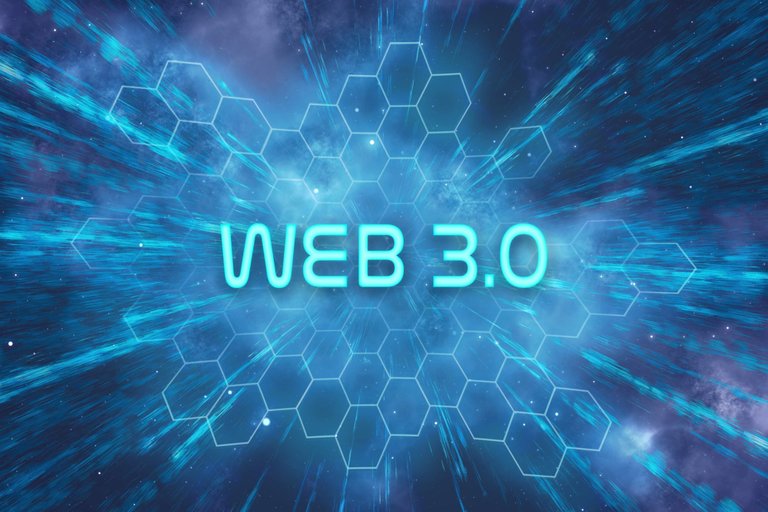How far can we go with web3?

Last year, a lot of hype was built around NFTs, the metaverse, and web3. The idea of having a decentralized web is really cool and important to the users of the web.
A lot has been done to get that phase of the web. Hive is one of many decentralized platforms giving power back to the builders and users of the web.
We are currently on a journey to a fully decentralized web but the question is how far can we go with this journey. Are we going to stop on the way, have problems deciding what route to take, or run out of gas.
Before I get into my thoughts of how far we can go in this journey, I'll do a little run down on how the web has evolved from web1 to web3.
Web1 was the first phase of the web in the 1990s and early 2000s. It is usually referred to as the "static web" because it mainly consisted of sites with static pages of text and images. Somewhat like a read-only page.
It was mainly used by companies to show important details about them like the services they provide, their address, and their opening and closing hours.
Web2 often called the "social web" or "interactive web" allows web users to do more than just reading through web pages but also interact with them. With the web2, users have the opportunity to post videos, a picture, or even publish a book, and millions of people will see it and interact with it.
Unlike in web1 where developers were the main players in content creation, web2 consisted of applications that were created to make the creation process easy thereby making it possible for anyone to be a creator of content on the web.
In this phase of the web was when we saw the rise of information and communications platforms such as Facebook, Twitter, and Youtube just to mention a few. These platforms allowed web users to use them in exchange for personal data.
Web3, or the "future of the internet" as it is often called, is the decentralized version of the internet owned by builders and users of the web. It is built using blockchain technology to ensure security, scalability and also enhance user privacy.
Decentralization is the key concept behind web3. Web3 allows the development and deployment of Decentralized Apps(DApps) on the blockchain. Most of the present DApps are built on the ethereum blockchain network. Web3 also added some new features to enhance the internet, such as:
- It is trustless
- It is permissionless
- It is self-governing
- It provides a free and open-source software
- It has native token payments
Now let's answer the big question
How far can we go with web3?
Decentralization being the key concept behind web3 basically means that in web3, users and builders of the web will be given ownership and total control of the web and also their data, taking out any third party. This is one of the many features of web3 that have had many web users optimistic about its innovation.
I believe having a decentralized web is possible in the near future. But the presence of centralized companies funded by big corporations in web3 makes me wonder if we'll be able to see a decentralized web anytime soon.
There are a lot of big players in the industry who are happy with the present phase of the web because of the monetary gains they get and they won't easily let go of anyone who tries to change things up.
These big players will do anything possible to maintain their power status and positions whether it be in the present web2 or the future web3.
The primary beneficiaries of this decentralized version of the internet as stated above are the users. Unlike in web2 where users are given "free" access to certain services provided by companies in exchange for their personal data.
Users of the web3 will make use of crypto wallets to interact with platforms and will get paid for the data or content they choose to share or pay for services they consume. So the choice of what data they share, who they share it with, and what they get paid in return is all made by the user.
So the problem of big companies having access to the personal data of internet users is not getting solved. The only difference is that you choose who share your personal data with and you get paid for it.
Conclusion
The web3 is still in its development phase but shows great promise of a better, safer, and more secure internet where the users and builders will be part of. I do believe in the possibility of having a decentralized web in the future.